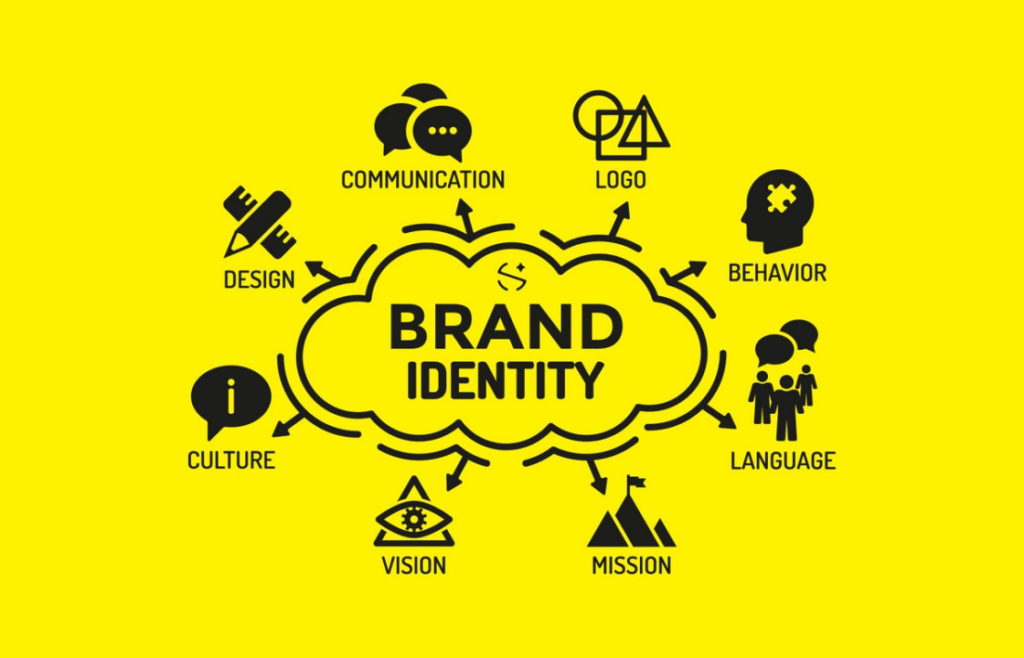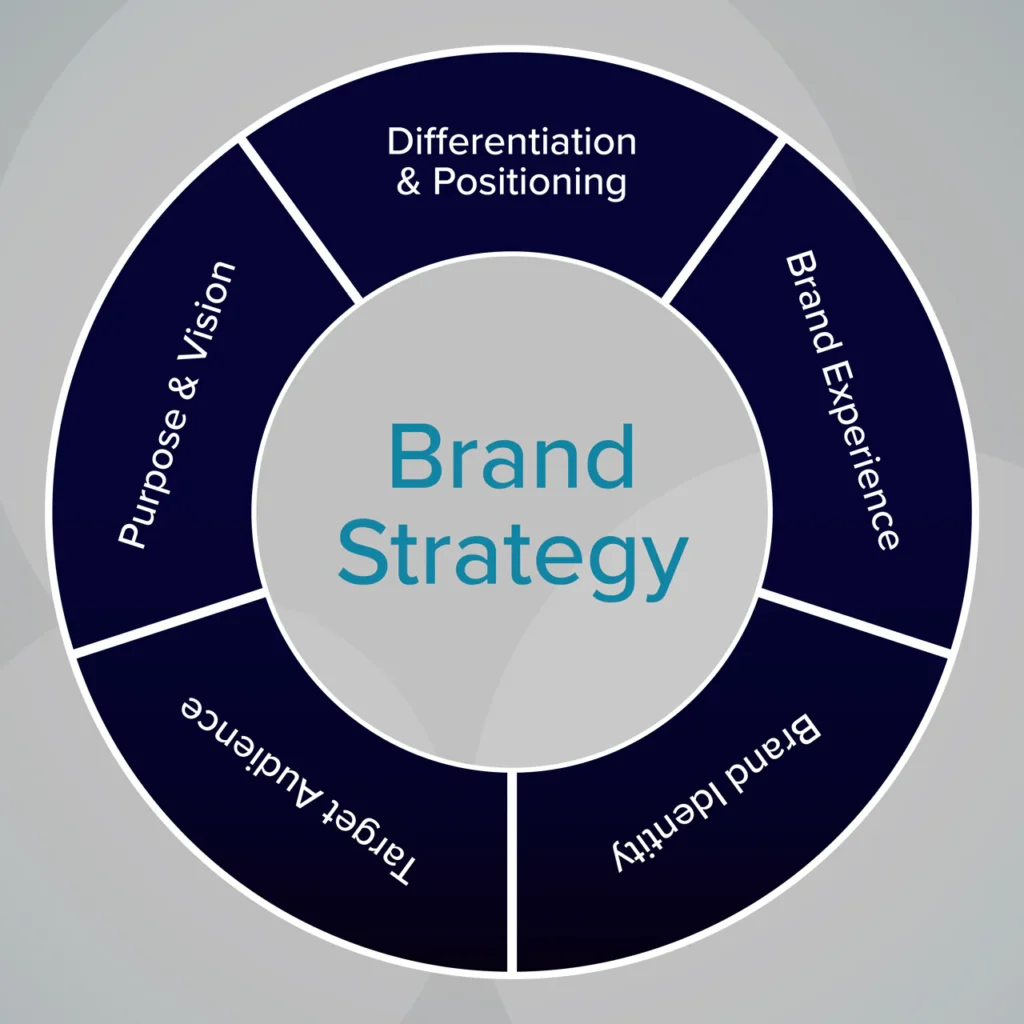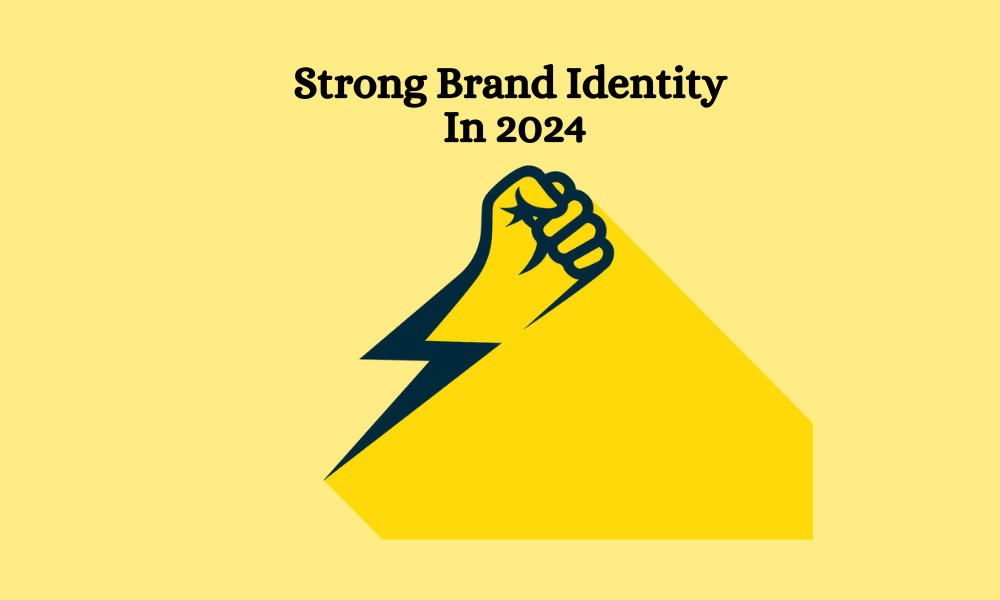Establishing a brand requires more than just making a business logo. While a logo represents your business, it is not a complete brand. In simple words, making a logo is the first step of your journey towards building a strong brand identity.
Nowadays, billions of agencies are in the race to establish themselves as a brand. If you are striving to become a brand, you need to understand the effort it takes for the purpose.

Understanding Brand Identity
Brand identity is a reflection of your business that states everything about your purpose, products, your mission and values. In other words, it is the personality of your business and a message to customers that you are here to help them.
Some people use brand and logo interchangeably while both are different. Brand is a broader term that explains about your business while logo is only a representative on the front.
Importance of Having a Brand Identity
Brand identity is crucial as it distinguishes a company from competitors, creating recognition and loyalty. It builds trust, conveys values and promises to customers, and influences their perceptions and choices.

| Importance of Brand Identity | Explanation |
| 1. Differentiation | Helps your brand stand out in a crowded market, making it easier for customers to recognize and choose your products or services. |
| 2. Trust and Credibility | Consistent branding builds trust with consumers, as they know what to expect from your brand, leading to repeat business and positive word-of-mouth. |
| 3. Emotional Connection | A strong brand identity can evoke emotions and create a deeper connection with your audience, fostering loyalty and advocacy. |
| 4. Competitive Advantage | It gives your brand a competitive edge by influencing perceptions, allowing you to charge premium prices and maintain market leadership. |
6 Steps to Create Brand Identity in 2024
Either you are reestablishing your brand or making a new one these steps will help you to stand out amongst your competitors
Define Your Brand Strategy:
Clearly outline your brand’s mission, values, and unique attributes. Understand your target audience’s needs and how your brand can fulfill them, ensuring a clear direction for your marketing efforts.

| Aspect | Description |
| Mission | Clearly state the purpose and goals of your brand. What do you aim to achieve for your customers and society? |
| Values | Identify core principles that guide your brand’s decisions and behaviors. These should reflect what your brand stands for. |
| Unique Attributes | List the distinctive features or qualities that set your brand apart from competitors. What makes your brand unique? |
| Target Audience | Describe the demographics, psychographics, and needs of your ideal customers. How does your brand fulfill these needs? |
Design Your Visual Elements:
Create a cohesive visual identity with a memorable logo, consistent colors, typography, and graphic styles. Visual consistency helps in instant brand recognition across various platforms and materials.
Craft Your Brand Voice:
Develop a tone and style of communication that reflects your brand’s personality and resonates with your audience. Consistent use of this voice builds familiarity and trust among your customers.
Define Your Brand Persona: Establish a clear understanding of your brand’s character traits and values. Whether you’re aiming for friendly and approachable or authoritative and professional, define these traits to guide your communication style.

Understand Your Audience: Tailor your language and tone to resonate with your target demographic. Consider their preferences, interests, and communication preferences to ensure your message is relatable and engaging.
Maintain Consistency: Use your brand voice consistently across all platforms and communications. This builds familiarity and trust, as customers know what to expect from your brand and feel more connected to it over time.
Create Brand Guidelines:
Document rules for how your brand should look, sound, and feel across all channels. This ensures all communications and visuals maintain coherence, reinforcing your brand’s identity and values. Do competitor research and find out what tactics they have used while creating brand guidelines.
Build Brand Awareness:
Execute a strategic marketing plan using social media, SEO, content marketing, and other tools to increase visibility. Consistent exposure helps potential customers recognize and remember your brand.
Foster Brand Loyalty:
Engage with customers positively, deliver on promises, and encourage feedback. Building strong relationships and consistently meeting expectations creates loyal customers who advocate for your brand, contributing to long-term success.

Conclusion
Creating a strong brand identity online in 2024 is not just about designing a logo; it’s about crafting a cohesive and compelling story that resonates with your audience. By defining your brand strategy, designing visual elements, and nurturing a consistent brand voice, you can differentiate your brand, build trust, and foster lasting customer loyalty.
Consistency across all channels and genuine engagement with your audience are key to standing out in a competitive market and achieving sustained success.
Read more : How much does it cost to develop a website
FAQs
A brand encompasses everything that represents your business—its values, mission, and customer experience.
Brand identity is crucial as it helps differentiate your business from competitors, builds trust, and creates a strong emotional connection.
Define clear brand guidelines that outline how your brand should look, sound, and feel across all platforms.
Brand identity guides your marketing efforts by ensuring consistent messaging and visual representation across various channels.

Alex Mitch
Welcome to my blog! With over 10 years in digital marketing , I’ve seen its incredible impact on smaller businesses. Join me as we explore how digital marketing can grow your audience and boost your business. Whether you’re an experienced entrepreneur or just starting out, you’ll find practical tips and insights to enhance your digital marketing strategies.





